Today is National Author’s Day in the UK which celebrates all the creative mind, their life, penmanship, legacy, and the impact they have on our lives and wider society.
Here are some ways to celebrate National Author’s Day:
- Purchase books or read the books you currently have
- Write a review of a book you’ve recently read
- Tweet to your favorite author
- Get involved in book-related activities
- Learn to write a book
- Read your favorite books
- Purchase books by your favorite authors
- Share your favorite novels online with the hashtag #NationalAuthorsDay
- Encourage aspiring authors in your lives
According to the United Nations, the attacks on southern and eastern Lebanon and the capital Beirut have been the deadliest in years. As of 29 September 2024, 346,209 IDPs, including 121,200 displaced children, were counted in Lebanon. More than 100,000 people fled from Lebanon to Syria by 30 September 2024, according to UNHCR.
The people of Lebanon are facing an unimaginable humanitarian crisis, and they need your urgent help. Many are traumatised from losing homes and loved ones. We are expecting casualties and fatalities to increase unfortunately, the need is already immense. IHRC Trust is monitoring the situation and looking to deploy in the worst hit areas. Urgent medical aid is needed to help treat civilians and support the local health system. We will aim to assist with procuring supplies of blankets, hygiene kits, medication, and medical supplies for the treatment of casualties.
Please donate generously below and support the people of Lebanon in the tribulations they face.
THROWBACK: Author Evening with Zirrar: Ghazi and the Garden
2 years ago, IHRC hosted Zirrar for an author evening where he discussed his publication, ‘Ghazi and the Garden’, a collection of Urdu and Persian poetry by poet and philosopher, Muhammad Iqbal. Click below to see the recording of the event.
Zirrar is a writer based in London, who has spent the past decade travelling the Near and Middle East from North Africa, Egypt, Sham, Hejaz to the lands of Khorasan. His work attempts to revive and invigorate a vision of Islamic cultural and identity revivalism, where the might and beauty of Islam can be re-discovered and shared across a new generation.
Scroll down to see recommended books available at IHRC Bookshop.
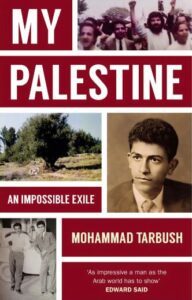 MY PALESTINE – Mohammad Tarbush
MY PALESTINE – Mohammad Tarbush
Mohammad Tarbush was born in British Mandate Palestine. As an infant, he and his family were forced to evacuate their village together with its entire population after the Zionist victory that led to the establishment of the State of Israel. As landless refugees in the West Bank the family sank into poverty. When, as a teenager, Tarbush left home one day under the pretext of visiting relatives in Jordan, he in fact set off on a year-long hitchhiking journey to Europe, where he would eventually become a highly successful international banker and a key behind-the-scenes promoter of the Palestinian cause.
My Palestine is a poignant personal memoir and an incisive political and economic commentary on the tumultuous events that shaped the history of Israel, Palestine and the modern Middle East.
Dive into the depths of a magical adventure in the new children’s fantasy fiction for children aged 8 – 12 years. Mermaid Lagoon is a place full of wonder, mystery and secrets. A place where the most magical things can happen. Is it for real… or just a myth?
Called upon by a great power, Lilly and her friends leave their normal lives to embark on a daring adventure to a mysterious but special school in the middle of the ocean, Ocean Academy.
But when they get there… a whole mystery begins to unfold! Will they discover some clues in order to track down a legendary object? An object that is rumored to be powerful enough to save the seas… and the world beneath it! Along with the ancient artefact, can they figure out who is trying to stop them- and why?
Splash in the sea with Lilly and her friends as a sneaky spy tries to ruin their plans for victory. Like the fictional sea creatures in this magical story, we must use our own powers to save our oceans and all that live within. They need us now- more than ever! Let us be their heroes in protecting them and their future.
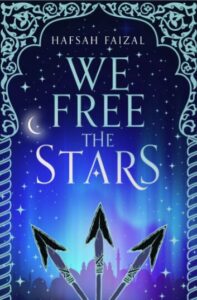 We Free the Stars (Sands of Arawiya) – Hafsah Faizal
We Free the Stars (Sands of Arawiya) – Hafsah Faizal
The epic sequel to the bestselling TikTok sensation We Hunt the Flame! This is YA fantasy at it’s best. Lush, hopeful and devestating, We Free the Stars is Hafsah Faizal’s spellbinding conclusion to the Sands of Arawiya duology. Perfect for fans of Leigh Bardugo’s Shadow and Bone series. Darkness surged in his veins. Power bled from her bones. The battle is over, but the war is just beginning. Low on resources and allies alike, Zafira and Nasir are determined to finish their mission; to restore magic to their kingdom.
But the land teems with the return of an ancient evil, and as Nasir fights to command the magic in his blood, Zafira battles a very different darkness. And yet, in spite of everything, they find themselves falling into a love they can’t stand to lose. Time is running out and if order is to be restored, sacrifices will have to be made . . .
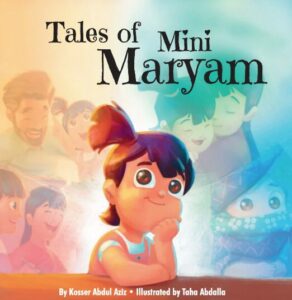 Tales of Mini Maryam – Kosser Abdul Aziz
Tales of Mini Maryam – Kosser Abdul Aziz
Welcome to the delightful world of 3 year old Maryam captured and delivered with 6 heart-warming short stories. Maryam whizzes around her house collecting and loading almost everything on to her tiny push chair, only to be met with disaster but, is all at loss? No, for Maryam remembers the power of dua (prayer). What do we say after we have sneezed?
Why do people go on pilgrimage? Can mini Maryam pray with her family? What do we say before we eat? Curious mini Maryam soon finds out.
Join Maryam as she discovers when and why to read certain Islamic prayers and to also keep her family in check! With fantastic and engaging illustrations by Taha Abdalla.
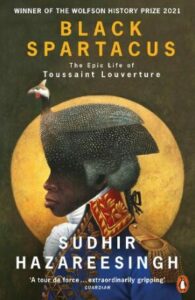 Black Spartacus: The Epic Life of Toussaint Louverture Paperback
Black Spartacus: The Epic Life of Toussaint Louverture Paperback
The Haitian Revolution began in the French Caribbean colony of Saint-Domingue with a slave revolt in August 1791, and culminated a dozen years later in the proclamation of the world’s first independent black state. After the abolition of slavery in 1793, Toussaint Louverture, himself a former slave, became the leader of the colony’s black population, the commander of its republican army and eventually its governor.
During the course of his extraordinary life he confronted some of the dominant forces of his age – slavery, settler colonialism, imperialism and racial hierarchy. Treacherously seized by Napoleon’s invading army in 1802, this charismatic figure ended his days, in Wordsworth’s phrase, ‘the most unhappy man of men’, imprisoned in a fortress in France.
Black Spartacus draws on a wealth of archival material, much of it overlooked by previous biographers, to follow every step of Louverture’s singular journey, from his triumphs against French, Spanish and British troops to his skilful regional diplomacy, his Machiavellian dealings with successive French colonial administrators and his bold promulgation of an autonomous Constitution.
Sudhir Hazareesingh shows that Louverture developed his unique vision and leadership not solely in response to imported Enlightenment ideals and revolutionary events in Europe and the Americas, but through a hybrid heritage of fraternal slave organisations, Caribbean mysticism and African political traditions. Above all, Hazareesingh retrieves Louverture’s rousing voice and force of personality, making this the most engaging, as well as the most complete, biography to date. After his death in the French fortress, Louverture became a figure of legend, a beacon for slaves across the Atlantic and for generations of European republicans and progressive figures in the Americas.
He inspired the anti-slavery campaigner Frederick Douglass, the most eminent nineteenth-century African-American; his emancipatory struggle was hailed by those who defied imperial and colonial rule well into the twentieth. In the modern era, his life informed the French poet Aimé Césaire’s seminal idea of négritude and has been celebrated in a remarkable range of plays, songs, novels and statues. Here, in all its drama, is the epic story of the world’s first black superhero.
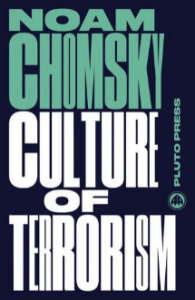 Culture of Terrorism – Noam Chomsky
Culture of Terrorism – Noam Chomsky
Chomsky ends his preface to Culture of Terrorism with the words, As the latest inheritors of a grim tradition, we should at least have the integrity to look in the mirror without evasion. The tradition to which he is referring is none other than the Western imperial project and in encouraging Americans to pursue integrity, he dissects the events of just one year 1986 at the height of the Reagan
Era and describes American involvement in acts of supreme state terror, both open and clandestine, to present a case study which has great relevance today and whose lessons must never be forgotten.
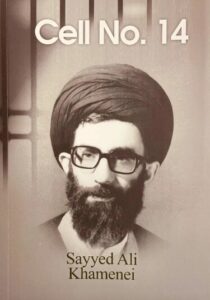 Cell No. 14 – Seyyed Ali Khamenei
Cell No. 14 – Seyyed Ali Khamenei
This autobiography covers the first half of the life of the leader of the Islamic Revolution Sayyid Ali Khamenei, from his early childhood all the way to the 1979 Islamic Revolution that brought the monarchical regime to an end in Iran. It provides a gripping account of a life full of struggle and fighting for justice and establishing an Islamic order in his country.
It is a remarkable saga of a young cleric blessed with an indomitable spirit who fights a dictatorial regime with his sermons and speeches as well as with his organisational abilities. He never loses hope despite being sent to prison and exile, and finally emerged victorious against all odds.
This book serves as a source of inspiration to all activists around the globe who are trying to bring about social and political change.
This book contains beautiful illustrations depicting different stages in the life of Ayatollah Khamenei.
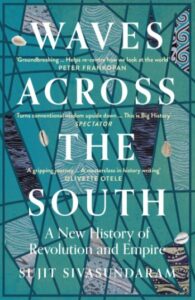 Waves Across the South: A New History of Revolution and Empire – Sujit Sivasundaram
Waves Across the South: A New History of Revolution and Empire – Sujit Sivasundaram
Starting from the ocean and from the forgotten histories of ocean-facing communities, this is a new history of the making of our world.
After revolutions in America and France, a wave of tumult coursed the globe from 1790 to 1850. It was a moment of unprecedented change and violence especially for indigenous peoples.
By 1850 vibrant public debate between colonised communities had exploded in port cities.
Yet in the midst of all of this, Britain struck out by sea and established its supremacy over the Indian and Pacific Oceans, overtaking the French and Dutch as well as other rivals.
Cambridge historian Sujit Sivasundaram brings together his work in far-flung archives across the world and the best new academic research in this remarkably creative book. Too often, history is told from the northern hemisphere, with modernity, knowledge, selfhood and politics moving from Europe to influence the rest of the world. This book traces the origins of our times from the perspective of indigenous and non-European people in the Indian and Pacific Oceans.
This is a compulsive story full of cultural depth and range, a world history that speaks to urgent concerns today. The book weaves a bracingly fresh account of the origins of the British empire.
Popular discourse around British Muslims has often been dominated by a focus on Muslim women and their sartorial choices, particularly the hijab and niqab. This book takes a different angle and focuses on Muslim men, examining how factors like the global war on terror influenced and changed their sartorial choices and use of language.
The book denaturalises the ubiquitous and deeply problematic security lens through which knowledge of Muslims has been produced in the past two decades. British Bangladeshi Muslims in the East End offers an alternative reading of these communities and how their political subjectivities emerge. Drawing on historical events, field research and existing academic work, the book aims to address the multiple ways British Bangladeshi Muslim men and women create their relationship with dress and language.
This is the first book to empirically examine how dress and language shape the identities of British Bangladeshi Muslims in the East End, using in-depth analysis useful for anyone interested in the study of British Muslims broadly. While the book focuses on a specific Muslim community, the emerging themes demonstrate the interconnectedness of Muslims locally and globally and how they manifest their identities through dress and language.


 Support the People of Yemen
Support the People of Yemen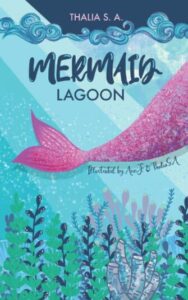 Mermaid Lagoon – Thalia S.A
Mermaid Lagoon – Thalia S.A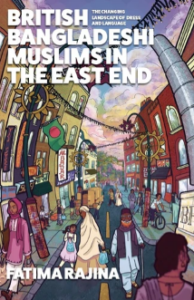 British Bangladeshi Muslims in the East End: The changing landscape of dress and language Hardcover by Fatima Rajina
British Bangladeshi Muslims in the East End: The changing landscape of dress and language Hardcover by Fatima Rajina




